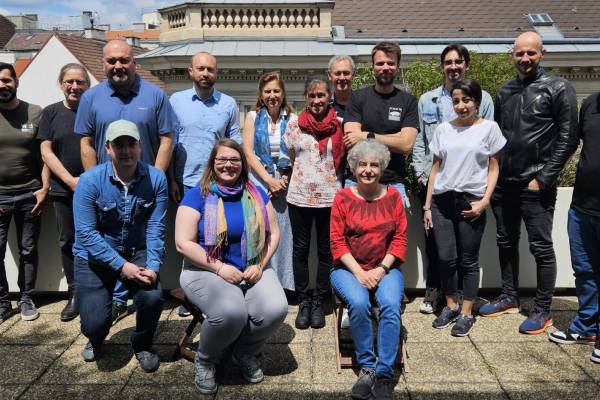AIDAVA Consortium Makes Strides Towards Revolutionizing Health Data Management
In a collaborative effort that spans nine countries, the AIDAVA project is steadily advancing towards transforming the landscape of health data management and accessibility. The project brings together fourteen partners, each contributing their expertise to drive innovations in automated curation and health data publishing through the power of artificial intelligence (#AI).
Empowering Patients with Control over Medical Data
The overarching goal of the AIDAVA project is to empower patients with comprehensive control over their medical data. By leveraging AI and cutting-edge technology, the project aims to create a unified, interoperable, and reusable medical records system. This innovative approach allows patients to effortlessly share their medical information with healthcare providers and researchers, fostering patient-centric care and advancing medical research.
Technical Innovation and Challenges
The project has achieved significant milestones in its pursuit of technical innovation. Partners from diverse backgrounds are collaboratively working on various aspects of automated curation and data publishing. Through this collective effort, the AIDAVA consortium aims to overcome complex challenges and pave the way for a new era of health data management.
Recent Collaborative Workshop in Vienna
The AIDAVA project recently held a productive technical workshop in Vienna on June 12-13. The workshop facilitated extensive discussions among partners, focusing on critical topics such as data curation workflows, data quality enhancement, and the patient onboarding process. The work package five workshops in Vienna aimed to review and align the design solutions of both the first and second generations of the data curation prototype. In-depth discussions among partners were held, centred around pivotal issues including refining data curation workflows, elevating data quality, enhancing multilingual accessibility for the virtual assistant, and advancing data annotation and NLP capabilities.
Throughout the workshop, emergent challenges were collaboratively addressed and pivotal decisions concerning the two prototype generations were made. This engagement fostered a unified understanding among the partners regarding the first-generation virtual assistant prototype and provided insights into the second-generation concepts.
A significant highlight of the workshop was the exploration of the Personal Health Knowledge Graphs (#PHKG) concept and the integration of reference ontologies. These discussions opened new avenues for research, further broadening the project's scope
Envisioning the Future of Health Data Management
As the project advances, partners are excitedly anticipating the upcoming phases. The collaboration involves a diverse group of experts, including clinical coordinators, researchers, data scientists, and more. By working together, these brilliant minds are poised to bring about a transformative change in how health data is managed, shared, and utilized. As the project progresses, it continues to champion the cause of patient-centric healthcare and innovative data management solutions.
